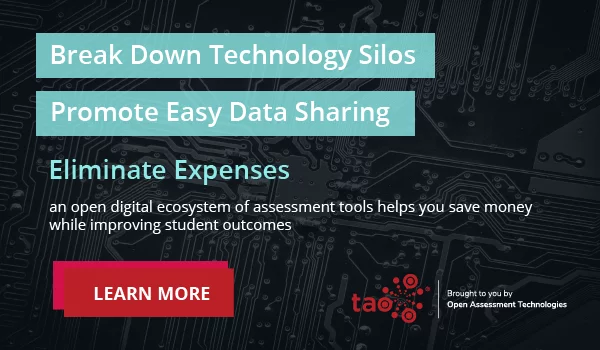Education has always been an ever-changing and evolving field. As education technology trends continue to become more advanced, teachers and school districts have more resources available to personalize the learning experience for each student. These education assessment tools and personalized learning opportunities all serve to help students grow and reach their full potential.
As with any changing industry, there is a learning curve when implementing new technology. By staying on top of the trends, educators can ensure that they are better prepared to meet the future and provide a high-quality education for their students.
The Changing World of Education Today
Today, more than ever, the world of education is changing rapidly, and staying on top of the 2024 edtech trends is critical to maximizing learning for students in the classroom. Schools and students have more access to individual technology such as computers, tablets, or other devices, in many cases, schools have shifted to a complete 1:1 student-to-device ratio. This means no more waiting for the computer lab to open up before giving students a chance to research on the internet. In 2024 students have the world at their fingertips and teachers are charged with teaching them how to leverage technology for learning.
Some of the top 2024 edtech trends include artificial intelligence, adaptive learning, and gamification of learning. Each of these can be included in changing how we assess and evaluate student learning. As technology advances so do the educational assessment tools that are available. Using a robust online assessment management system, educators can use online digital assessments to analyze large data sets and move students forward in their classrooms.
5 Predictions for Education and Assessment Tools in 2024
As we move into 2024 there are some education technology trends will continue to change and may be unpredictable. Generally speaking, we are moving into a time period where just having technology available is not enough. Students need high-quality technology and software that makes learning more efficient and effective.
While there are no guarantees, there are 5 trends and predictions to watch for in education and assessment in 2024. Those 2024 edtech trends and predictions include:
Artificial Intelligence Will Become More Normalized
One of the biggest buzzwords and trends not only in education but in the tech world as a whole is artificial intelligence or AI. For many teachers, AI has a negative connotation and may be outright banned in some schools. However, AI is a lot more than predictive text or Chat GPT. AI can be used to enhance many aspects of the student learning experience.
Artificial intelligence can provide customized content creation and learning opportunities for students in real-time. Using AI technology, teachers can develop activities and assessments that change and adapt as students take them giving flexibility and providing a targeted learning experience.
Schools Will Lean Toward Adaptive Learning Materials
As AI becomes more widely available, schools will begin to use adaptive materials to provide a unique and personalized learning experience for each student. Adaptive testing and adaptive learning use algorithms based on student actions or responses to plan and implement future learning opportunities.
With adaptive learning, students get exactly what they need when they need it rather than relying on the teacher to work with each student individually. These materials may have a particular impact on multilingual learners and neurodivergent students as they provide multiple chances for learning and success while moving at a pace that suits each individual.
A Shift Towards Competency-Based Assessments
Traditional assessments were geared towards assessing how well a student could remember or understand content. However, in 2024, assessments will become increasingly competency-based. This means that rather than assessing how well a student knows a topic, the assessment will be geared toward applying concepts and skills.
Digital educational assessment tools can help teachers design and implement assessments that have students solve problems or work through material that accurately assesses their skills rather than simple knowledge. This style of assessment is more in line with 21st-century learning and assessment where students are evaluated on what they can do rather than what they know.
A Rise In Gamified Learning
Studies show that turning learning into a game, also called gamification, is a great way to increase student engagement and overall learning outcomes. When students treat learning and assessment like a game it makes it fun and challenging for them to unlock levels or new learning. Gamification also promotes universal design principles such as giving students multiple opportunities to engage with materials and multiple chances to find success.
By developing a gamified learning experience for students, educators give students a chance to learn in a new way. Online learning and educational assessment platforms, in tandem with AI and adaptive learning, have made it easier to implement gamified learning as students can have autonomy in the learning process while still navigating standards-based materials.
Further Reliance on a Flipped Classroom Model
With technology becoming more prevalent in the home and outside of school we could see many educators opting to flip their classroom. This means they can assign video lectures and independent work activities such as reading an article to be done outside of class and then use class time to engage students in discussion and other learning.
The flipped classroom can be beneficial because it preserves class time, which is limited, for activities that need to be done in class, such as whole group work, Socratic seminars, and just providing access to the teacher for more targeted learning. Available technology can provide students with what they need 24 hours a day, so learning doesn’t have to stop at the end of the school day.
How Can Schools and Educators Prepare For Change?
Preparing for these changes may seem daunting. However, by choosing the right technology and educational assessment tools, schools can prepare teachers and students for these changes. Working with technology such as Tao educators can design assessments and learning activities using the latest educational assessment tools, keeping up with the latest education technology trends.
It also is important to note that as with any technology, there may be a learning curve for teachers and students. Providing initial and ongoing professional development can help educators embrace these new technology changes with few hurdles to increase student growth, engagement, and achievement.

